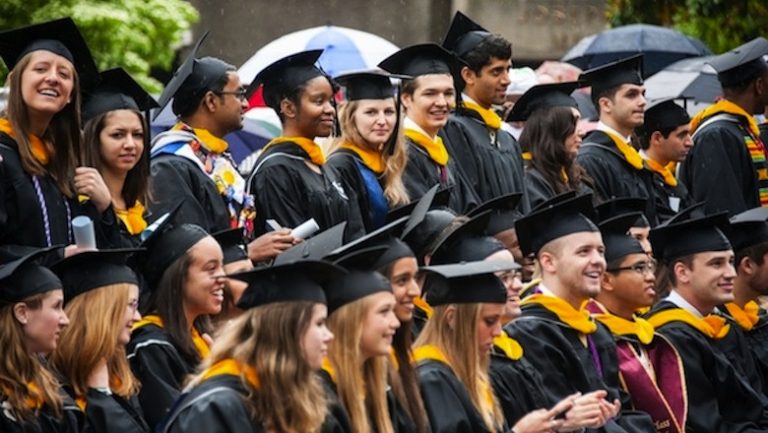GU Grad Students Can Hold Union Vote
By • April 18, 2018 0 434

By Peggy Sands and Robert Devaney
Georgetown University administrators agreed April 2 that graduate students who are teaching and research assistants on campus will be allowed to vote this spring on whether or not to join the American Federation of Teachers union.
For years, graduate students throughout the country have argued that collective bargaining is the only way universities will take seriously their demands for better working conditions. But the decision to allow the grad students to unionize became embroiled in politics.
In 2016, during the Obama administration, a National Labor Relations Board ruling had granted teaching and research assistants legal protection to unionize. In 2017, however, after Donald Trump was elected, the Georgetown Alliance of Graduate Employees, which was organizing a possible union vote with the AFT, feared a shift on the labor board from Democrat to Republican would result in the ruling being overturned.
In December, Georgetown University administrators had refused to support graduate students’ effort to unionize, arguing that graduate students are not employees and that the work they contribute should be considered part of their education. In the past three months, administrators at Boston University, Yale University and the University of Chicago have fought against graduate student unions on those grounds.
But now Georgetown officials have said that, regardless of the NLRB’s actions, the university will respect students’ right to vote for a union and engage in collective bargaining over a contract.
By adopting voluntary agreements, schools can avoid costly litigation that often arises over the scope of the bargaining unit or other disputes, according to the student alliance, known as GAGE, which has been calling for University President John DeGioia to back their unionization campaign for months.

